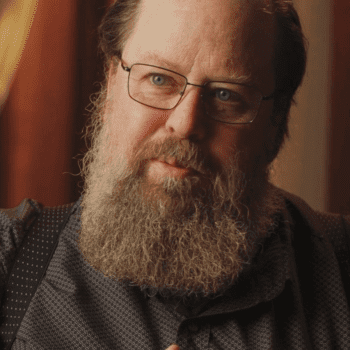Most of the “Nones” who have no affiliation with any particular religion do hold religious beliefs. But they claim to be “spiritual but not religious.” They often believe in a deity of some kind (only 21% don’t believe in God), and they may even pray and do other religious exercises, but they reject “organized religion.” For them, religion is a purely private, internal affair, and they cannot stand the “institutional” dimension of the world’s different religions. But research is showing that the “institutional” and corporate dimension of religion is exactly what makes it so beneficial, both to individuals and society.
As the number of these “Nones” increases, now numbering some 23% of the population, as many as evangelicals (23%) and Catholics (23%), social scientists can start to see the effects. Ericka Anderson reports:
The rise [of the “spiritual but not religious”] is contributing to a concerning pattern. It’s concerning not only because people are losing faith, but because of what faith represents as a component of civil society and how it contributes to our lives as a whole.
Numerous studies and polls provide evidence that the faithful are generally happier and healthier overall. Religious devotion contributes to stronger marriages, families, friendships, and what appears to be significant protection from depression or addictive behaviors. . . .
But it’s not simply the hope found within a “higher power” that makes the difference. The social community, rituals, and practices found within the context of faith—no matter the religion—are the cornerstones that help individuals and society most.
These “organized” parts of religion that so many “nones” claim to despise are actually invaluable pieces of our lives. As “organized religion” has decreased, rates of depression, anxiety, and addiction have increased comparably.
Not only are people happier and less likely to sink into isolation and despair personally, but research also points to some fascinating numbers regarding charitable giving, volunteering, and participation in a number of civic duties.
In their data-packed book “American Grace,” Robert Putnam and David Campbell found that Americans who attend church regularly give more than double to charity than their unchurched counterparts, and volunteer in even higher numbers for both faith-based and secular causes.
The authors posit that “communities of faith seem more important than faith itself,” because of the social engagement, neighborly support, and likelihood that one will extend himself or herself for others in a variety of ways.
Thus saith the social scientists.
But I would have to take issue with the notion that “communities of faith” are “more important than faith itself.” Also that the “benefits” of religion have to do with mental and social health. The only reason to believe in a religion is the conviction or faith that it is true, whether or not it makes us happy or not.
And yet, religion–I speak particularly of Christianity–does have a corporate dimension. That is, it involves other people. It has to do with “love,” which, by definition, entails a relationship with someone else, both with God and with one’s neighbors. The Gospel calls us into a “church,” an assembly of other believers who, together, constitute “the body of Christ.” Though Christianity entails personal beliefs, it is never purely “private.” Worship, the sacraments, good works, vocation, and the Christian life in general connect us with other people.
There have been and are highly individualized and internal kinds of spirituality that purport to be Christian–both in radical Catholicism and radical Protestantism, which have much in common, with desert hermits and “me and Jesus” evangelicals. But these are highly truncated and problematic versions of Christianity.
So it is true that Christians, in being involved with other people, do have a support system and social interactions that are highly beneficial. And such support and interactions have become increasingly hard to find in today’s society. “Virtual communities” are not actually communities–being more likely to tear you down than help you–and the virtual “friends” on social media are not the same as having actual friends. The church is one of the few places these days where one can find healthy interpersonal interactions. (Another, I suppose, is the workplace, which is why work plays such an important role in people’s sense of well-being, while being the occasion of problems of its own.)
Being “spiritual” in an internal, mystical, privatized, highly-individualized way is not going to give you these benefits. Rather, it uses spirituality as yet another means of escaping from the external world ever deeper into one’s own self. That kind of religiosity is isolating, with the potential of intensifying our loneliness and lack of connection with the external world.
We need institutions, with their rituals we can participate in with others and the obligations and relationships they impose. Not only for religion to give us better lives, but, I would add, for our religion to be true.
Image by Stefan Keller from Pixabay, Pixabay License


















